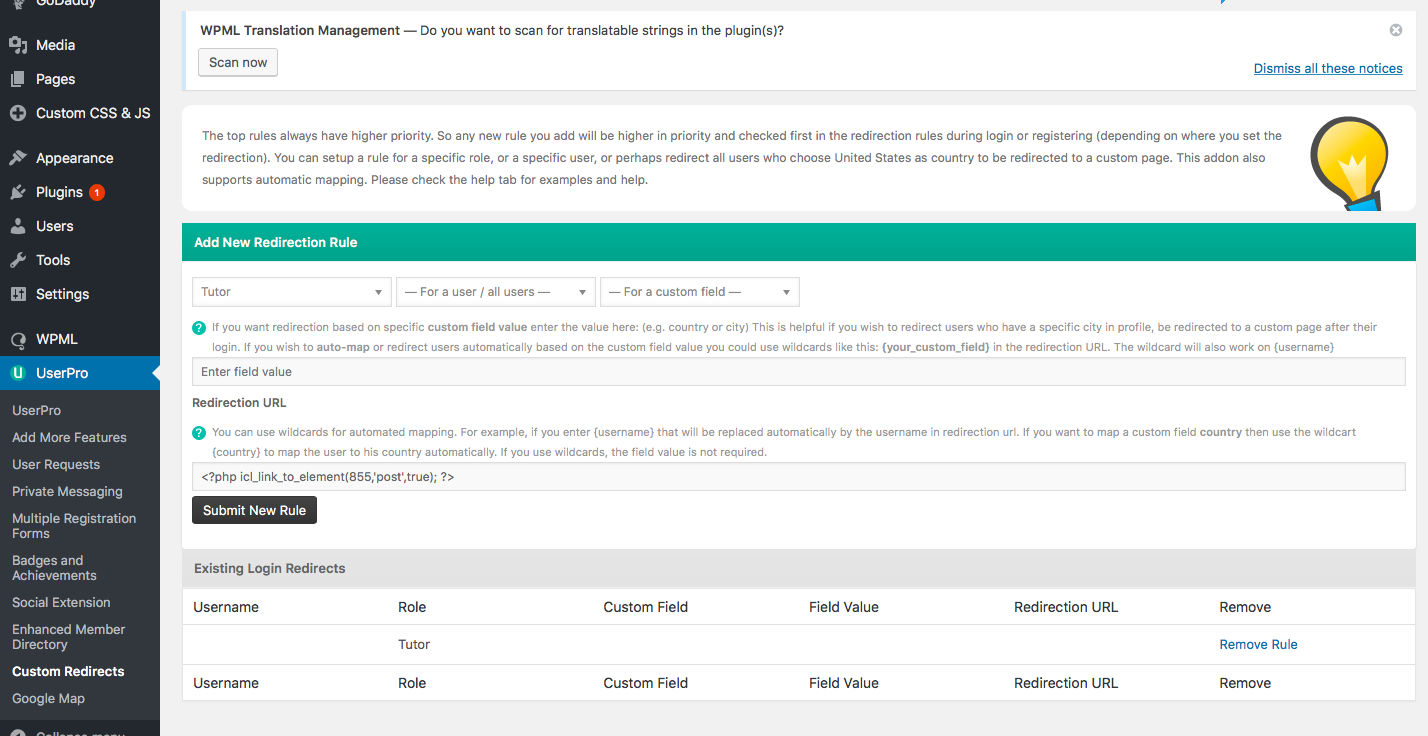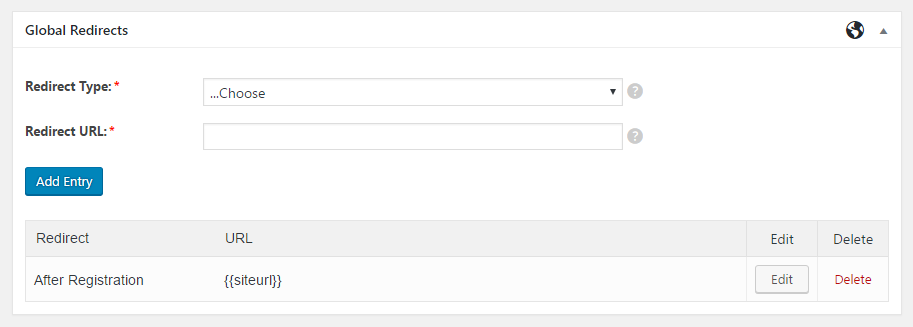

Note that keys are wrapped with " and string values use " instead of ': The following is an example for redisCacheOptions value. To use this cache, add a property named redisCacheOptions, with a dictionary with keys as explained here as its value. In most cases, a clustered Gluu installation already leverages a Redis cache, so we can reuse it here. To account for this scenario, we provide a safe cache for validation based on Redis. This cache can lead to validation errors when the Gluu Passport environment consists of more than one server (such as a clustered setup). Then the InResponseTo of SAML responses are validated against the cache. When validateInResponseTo is set to true, a simple in-memory cache is used to store the IDs of the SAML requests sent by Passport. In case you are interested in signing the authentication requests, you can supply privateCert (a RSA-SHA1 PEM private key). In oxTrust visit Passport > Basic Configuration to see these values. To be more precise, decryptionPvk and decryptionCert correspond to items Passport SP Decryption cert and Passport SP Decryption Private key found in the basic configuration page. Public certificate matching decryptionPvk Private key that will be used to attempt to decrypt any encrypted assertions received If not specified, the following properties will be added by default: Property For details on this topic you can check passport-saml repo documentation. Regarding the value of cert, if you are using Shibboleth bundled in a Gluu Server instance, visit and see the contents of XML tag KeyDescriptor where use="signing" inside IDPSSODescriptor tag.Īdd other properties you might consider relevant. Include only the body of the certificate: suppress the BEGIN CERTIFICATE and END CERTIFICATE lines, any whitespace, and all line breaking characters (new line/carriage return). cert: The IDP's public PEM-encoded X.509 certificate used to validate incoming SAML responses.You can use different values or the same across different added IDPs issuer: entityID of Passport as SP (eg.If not provided, the default is HTTP-Redirect authnRequestBinding: SAML binding for requesting authentication, only HTTP-POST or HTTP-Redirect are supported.identifierFormat: Identifier format to request from IDP.entryPoint: URL to which SAML requests can be sent to.This strategy is highly customizable via configuration parameters, which are specified in the "Provider options" panel.īy default, only a small set of parameters for a working setup are shown in the options panel: For IDPs, the passport-saml strategy is used. It's not required to check Request For Email or Email linking unless implementing custom flow behaviorĪs mentioned earlier in the introduction to inbound identity, Passport reuses Passport.js strategies to integrate a variety of identity provider "flavors". Check this section of the introductory page to learn moreĬheck Is enabled (unless there is a reason to leave this provider integration temporarily disabled) Optionally, supply a logo path for this provider. Check here to learn more about identifiers usage In oxTrust, navigate to Passport > ProvidersĮnter an identifier for this provider (letters, digits, and underscore characters allowed). Integrate IDPs for inbound SAML #įollow these steps to integrate an external IDP for inbound SAML:Įnsure the machine(s) running Passport have access to the SAML provider you are trying to connect to. Once the steps above are performed, the TCP port 8090 appears ready to accept connections. In oxTrust navigate to Configuration > Organization configuration > System configuration.
#PRIVATE PROFILE REDIRECTOR UPDATE#

This document provides instructions for configuring the Gluu Server to support user authentication at one or more external SAML IDPs (a.k.a.


Register Passport metadata with external IDPĪbout the Assertion Consumer Service (ACS) URLĪttributes mapping and transformation in Passport


 0 kommentar(er)
0 kommentar(er)
